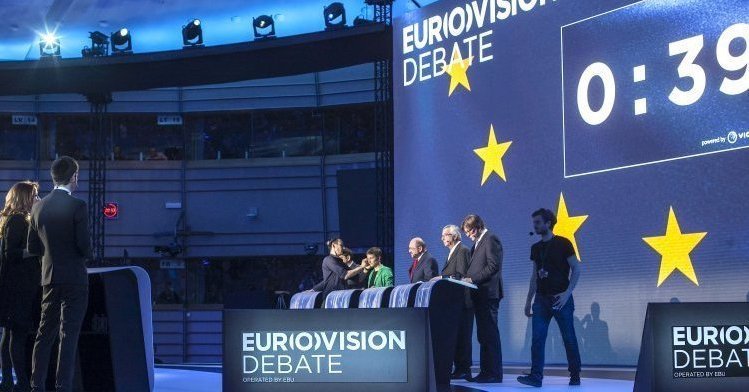The system, and thereby European democracy, triumphed in the summer of 2014, with David Cameron and Viktor Orbán being the only prime ministers holding grudges against having the winning party’s candidate lead the Commission. With both of the two prime ministers now in disgrace, and with European-level parties already preparing for their selection of top candidates, Spitzenkandidaten has consolidated itself remarkably well. Against that backdrop, there is no doubt that a debate between the top candidates is newsworthy. A debate between a handful of candidates, one of whom is destined to lead the European Commission. There are worse things that have made it on prime time TV.
In 2014 already, the top candidates, among whom Jean-Claude Juncker, held televised debates. National mainstream TV channels did not take much notice. Perhaps there was doubt as to whether any of the debaters were going to hold power later. To the extent that it is possible, past experience has now dissipated such doubts. In 2019, neglect of the debates would be an indefensible denial of information to voters. The voters deserve to know the views of the main candidates, as they do in any other election.
By providing the Spitzenkandidaten system, the institutions have made a contribution to democratising the Commission. The European-level parties are doing their part by nominating candidates. If in 2019 the people don’t know who the candidates are, we can cast blame on national-level media executives and, as I have argued previously, national-level political parties. Don’t blame “Brussels” if the candidates were there, but the national capitals chose not to tell you!
There already are encouraging examples from 2014, which shows that having TV debates like this is possible. What’s more, tonight we will see an example of a genuinely pan-European broadcast, which is incidentally one of Europeans’ favourite TV programmes - namely, Eurovision. If we can have a European-wide song contest broadcast to homes across the EU and beyond, surely we can provide the same when our democracy is at stake.
For decades already, we have got Eurovision every year, and we have loved it. From next year onwards, it’s time for us to hear about what visions our leaders have for Europe, just every five years. That’s not too much asked, is it? Call it Eurovision Debating Contest if you like!



Follow the comments: |
|
